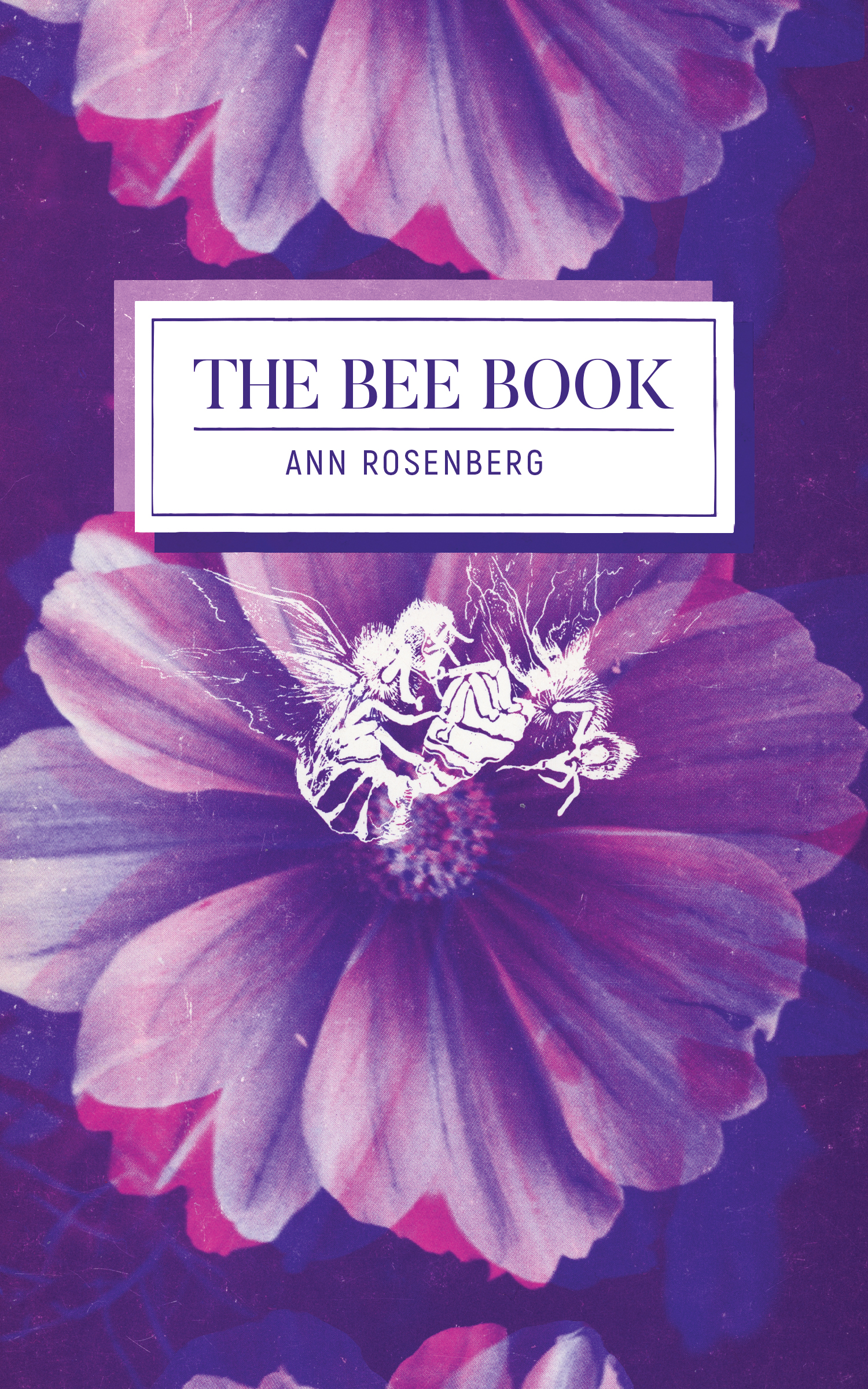The Bee Book
$ 9.99 – $ 24.95Price range: $ 9.99 through $ 24.95
by Ann Rosenberg
Introduction by Stephen Cain and Eric Schmaltz
208 pages / 8″ x 5″
28 October 2025
FICTION / Feminist / Women / Canada / 20th Century
A surreal story of honeyed sweetness, predatory stings, and metamorphosis.
In a coming-of-age story inspired by second-wave feminism, the intelligent and curious Habella confronts her passions and those of the men around her. From her first period to unsettling sexual encounters, to her dissatisfying life as a mother and wife, The Bee Book follows Habella as she negotiates the complexities of her desires as they conflict with the oppressive norms of patriarchy. In this genre-defying work that brings together fiction, poetry, visual art, games, and more, we follow Habella—deeply inspired by the lives of bees—as she seeks self-liberation.
Originally published in 1981, this new edition features an introduction by Stephen Cain and Eric Schmaltz.
Ann Rosenberg (1940–2018) was a vital presence in the Vancouver art and publishing scene as a curator, critic, artist, writer, and an editor at The Capilano Review from 1975 to 1986. She founded the Fine Arts department at Capilano College and was the author of Movement in Slow Time (1988) and The Bee Book.
Eric Schmaltz is the author of Borderblur Poetics: Intermedia and Avant-gardism in Canada, 1963-1988 (University of Calgary Press), Surfaces (Invisible Publishing), and I Confess (Coach House Books). He is the editor of Another Order: Selected Works of Judith Copithorne (Talonbooks) and co-editor of I Want to Tell You Love by bill bissett and Milton Acorn. His creative work has been published, exhibited, and performed nationally and internationally.
Stephen Cain is Professor of English at York University where he teaches Canadian and avant-garde literature. He is the author of seven books of poetry and the editor of bp: beginnings (2014), a critical edition of the early long poems and sequences of bpNichol.
Praise for The Bee Book:
“The Bee Book is a brilliantly intricate dance recreating for the reader distant regions of imagination, fanciful stratospheres of invention, into which few bees—or few writers—dare to fly.”—Cathy N. Davidson, Canadian Literature, 1985
“The Bee Book is open, rollicking, a mish-mash of letters, poems, diagrams, charts, photographs, typographical verse, purple passages, jokes… but the book is rich, inventive.”—Marian Engel, author of Bear
“Poetic passages full of innuendo”—The Globe and Mail, 1982
“This book makes its impact through poetry, often concrete, often suggesting sound, through drawings and diagrams, mostly of bees, through black and white photographs, as much as through its sensuous and often erotic prose.”—Canadian Book Review Annual, 1981
“The book is a balanced metaphor of self-actualization… the heroine allows herself only one choice: bee-ing or nothingness”—Calgary Herald
| Dimensions | 20.3 × 12.7 cm |
|---|---|
| Author | Ann Rosenberg |
| Publication Date | 28 October 2025 |
| Pages | 208 |
| Ebook Accessibility | This publication conforms to WCAG 2.0 Level AA. |
Media Copy and Author Interview Requests: please contact us at promotion@invisiblepublishing.com with your deadline and provide your full contact information.
Excerpts, Permissions, and Desk Copy Requests: please email your request to publisher@invisiblepublishing.com with details of proposed use.
For Rights Inquiries, please email publisher@invisiblepublishing.com.
You may also like…
Fiction
Fiction



